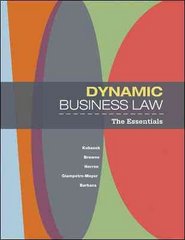Question
plz explain by steps. Harold the Historian and Eddie the Economist are trapped on a different deserted island without any goods to consume. However, on
plz explain by steps.
Harold the Historian and Eddie the Economist are trapped on a different deserted island without any goods to consume. However, on the island there are two items, firewood (F) and pineapple (A), which can be collected. Harold can collect a maximum of 40 units of firewood per day or a maximum of 20 pineapples in a day. Eddie can collect a maximum of 10 units of firewood per day or a maximum of 20 pineapples per day. Both Harold and Eddie like to barbecue the pineapple which requires consuming two units of firewood for each pineapple. Specifically, their utility functions are bothU=min[0.5F,A].
(a) In the morning, Harold sets off to collect 20 units of firewood and 10 pineapples but Ed- die stops him and explains the idea of comparative advantage. Being a historian, Harold cannot understand why both individuals could be better off coordinating their collection activities since Harold is at least as good as Eddie both at collecting firewood and pineap-
ples. What collection scheme would Eddie suggest?
After only a few days, Eddie starts to become annoyed with Harold (he keeps wanting Eddie to re-enact the civil war with him). To minimize contact with Harold, Eddie wakes up early every morning and carves prices for firewood and pineapples into a tree which will dictate the terms of trade between them.
(b)Suppose those prices arepF=2 andpA=2. Draw Harold's production possibilities frontier and what his budget constraint will be if he specializes in collectingFand what his budget constraint will be if he specializes in collectingA. Do the same for Eddie in a separate diagram.
(c)At the prices given in (b), what will the quantity demanded be forF? What about the quan- tity supplied? Since Eddie is the market designer looking for prices that lead to no excess demand or excess supply, in what direction should Eddie adjust the price of firewood or pineapples?
(d)Can you find prices (or a ratio of prices) that result in the same outcome you described in part (a)? (If you find either person is, at the given market prices, indifferent between collectingForA, you can assume he collects whichever you want.)
Step by Step Solution
There are 3 Steps involved in it
Step: 1

Get Instant Access to Expert-Tailored Solutions
See step-by-step solutions with expert insights and AI powered tools for academic success
Step: 2

Step: 3

Ace Your Homework with AI
Get the answers you need in no time with our AI-driven, step-by-step assistance
Get Started


